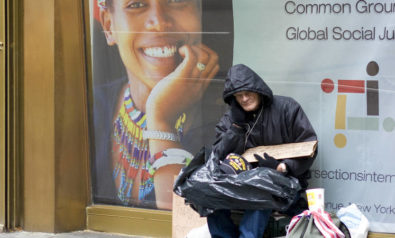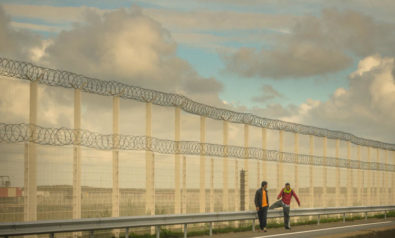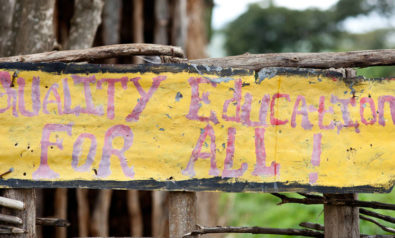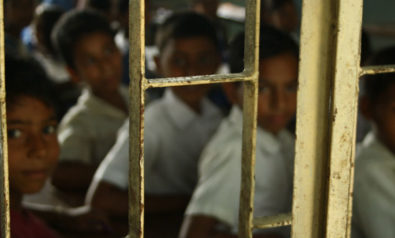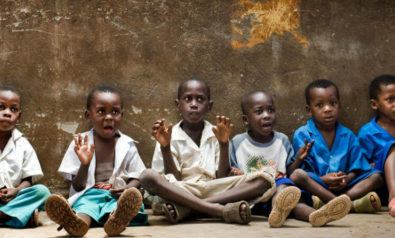Ending poverty is a truly gargantuan challenge, but it is the moral and practical imperative of our times.
Background
Poverty, a word with Latin roots, is simply a state of privation when human beings lack necessities. In the not too distant past, a large proportion of the world’s population lived in extreme poverty. About a third of the population of modern-day Bangladesh, West Bengal and parts of Assam, Orissa, Bihar and Jharkhand died in the great famine of 1770. British exploitation caused this famine and such rapacious behavior by colonial powers led to much poverty around the world.
Till the middle of the 20th century, poverty in Latin America, Africa and Asia was a common phenomenon. But the studies of Charles Booth and Seebohm Rowntree demonstrated that poverty was not uncommon even among the industrialized nations. Furthermore, they challenged the commonly held view that poverty resulted from the weaker morals of the working classes. Instead, they proved that poverty was largely caused by endemic social and economic conditions. Rowntree found that nearly 30% of the population of York was living in poverty in 1899. They did not have enough food, fuel and clothing to keep them in good health.
Rowntree’s work has now been taken up by others. International institutions attempt to measure poverty on an ongoing basis. The World Bank aims to rid the world of poverty and defines it as a state when someone earns less than $1.90 per day. In a report published by the World Bank and the International Monetary Fund (IMF), the number of those who earn less than $1.90 a day is estimated to be around 700 million. This is less than 10% of the world population. In 1990, this figure was 37% and Jim Yong Kim, the president of the World Bank, has triumphantly declared poverty eradication to be the best story in the world today. He has gone on to declare “that we are the first generation in human history that can end extreme poverty.”
The World Bank baseline of $1.90 per day might not be the best metric for measuring poverty, and its number of the global poor population might be a gross underestimation. As per the United Nations (UN), over 50% of children under five in South Asia and over 40% in Sub-Saharan Africa are stunted. These children struggle to get access to clean water, proper nutrition and rudimentary health care. They suffer lifelong health problems, including cognitive damage.
According to the most recent Human Development Report (HDR), more than 2.2 billion people, over 30% of the world population, “are either near or living in multidimensional poverty.” More alarmingly, about 80% of the people on the planet lack comprehensive social protection, 12% “suffer from chronic hunger,” and 20% live in countries affected by conflict.
Hence, it is unsurprising that the UN has declared ending “poverty in all its forms everywhere” as the first of its Sustainable Development Goals (SDG).
Why Does Poverty Eradication Matter?
Poverty-plagued societies tend to be more violent, sick and unstable than prosperous ones. In an interconnected world of more than 7 billion people, the problems of the poor cannot be confined to ghettos or certain geographic regions. Refugees from conflict-ridden areas are streaming into Europe. Diseases from West Africa such as Ebola spread to the United States in the blink of an eye. Poor areas in American cities such as Baltimore and Detroit have “shoot ‘em up” gas stations, murderous gangs and “drive by shootings” on a regular basis. Cities suffer when poverty and crime increase. It is clear that poverty eradication has practical benefits not only for the poor, but also for numerous others.
Sadly, eradicating poverty is easier said than done. Measuring poverty is difficult. Finding its causes, particularly the most pertinent ones, is even harder. Figuring out policies to alleviate and eradicate poverty is infernally complex. Joseph Stalin’s collectivization killed millions of kulaks and Mao Zedong’s Great Leap Forward was a massive somersault backward. Yet humanity now has a better understanding than before about dealing with poverty. For instance, educating women and giving them money works wonders in all parts of the world.
Obviously, there is no one size fits all policy to eradicate poverty. African Americans tend to be poor in the US because they are still less equal. The legacy of slavery and apartheid-style Jim Crow laws, along with a discriminatory criminal justice system that puts one out of three black men into jail once during their lifetime, means that it is harder for African Americans in crime-infested bad neighborhoods to break out of the vicious cycle of poverty.
In India, the poor still tend to come from lower castes despite decades of progress. They still do not have access to education, jobs and wealth in a country of over 1.25 billion people. Women worldwide are poorer than men, thanks to continuing discrimination and lack of comparable opportunities. Indigenous communities still suffer greatly from poverty.
Other perils remain. Many poorer countries are caught in a debt trap. Far too often, they borrow to pay back old debt, ending up at the mercy of creditors who keep them trapped in poverty. Microcredit can be a delusion too. Even humanitarian aid can cause more harm than good.
Similarly, blind trust in markets à la Ronald Reagan is no solution either. It has led to soaring inequality, environmental damage and increasing poverty. Even as corporate profits have tripled since 1980, 46.7 million Americans—14.8% of the population—are now living in poverty. The 85 richest people in the world have the same wealth as the 3.5 billion poorest people.
Furthermore, climate change is threatening to widen global inequality and “reduce average income in the poorest 40% of countries by 75% in 2100.”
In the past, poverty has been tackled through various measures. Otto von Bismarck brought about comprehensive reforms in Germany, laying the foundation of the modern European welfare system. In the United Kingdom, Rowntree’s reports led to the reforms of 1906-12, which included the provision of free school meals, sickness and unemployment insurance for working men, as well as the first state pensions. The communist countries of China, Vietnam and Cuba have been eradicating poverty by ensuring that their people have better nutrition and improved medical attention.
The knowledge and expertise to end poverty already exist. All the world needs is social conscience and political will.
The views expressed in this article are the author’s own and do not necessarily reflect Fair Observer’s editorial policy.
Photo Credit: Nolte Lourens / Shutterstock.com
 We bring you perspectives from around the world. Help us to inform and educate. Your donation is tax-deductible. Join over 400 people to become a donor or you could choose to be a sponsor.
We bring you perspectives from around the world. Help us to inform and educate. Your donation is tax-deductible. Join over 400 people to become a donor or you could choose to be a sponsor.
For more than 10 years, Fair Observer has been free, fair and independent. No billionaire owns us, no advertisers control us. We are a reader-supported nonprofit. Unlike many other publications, we keep our content free for readers regardless of where they live or whether they can afford to pay. We have no paywalls and no ads.
In the post-truth era of fake news, echo chambers and filter bubbles, we publish a plurality of perspectives from around the world. Anyone can publish with us, but everyone goes through a rigorous editorial process. So, you get fact-checked, well-reasoned content instead of noise.
We publish 2,500+ voices from 90+ countries. We also conduct education and training programs on subjects ranging from digital media and journalism to writing and critical thinking. This doesn’t come cheap. Servers, editors, trainers and web developers cost money.
Please consider supporting us on a regular basis as a recurring donor or a sustaining member.
Support Fair Observer
We rely on your support for our independence, diversity and quality.
Will you support FO’s journalism?
We rely on your support for our independence, diversity and quality.


